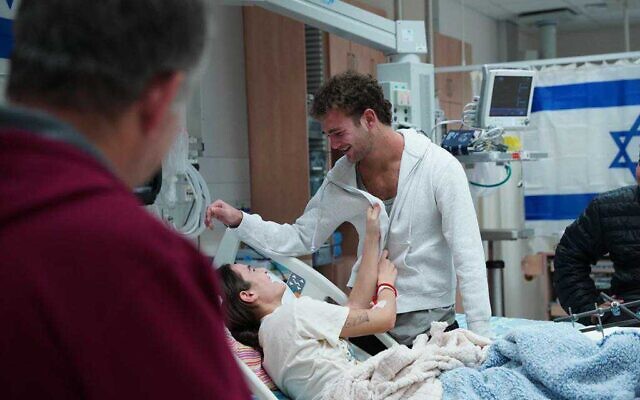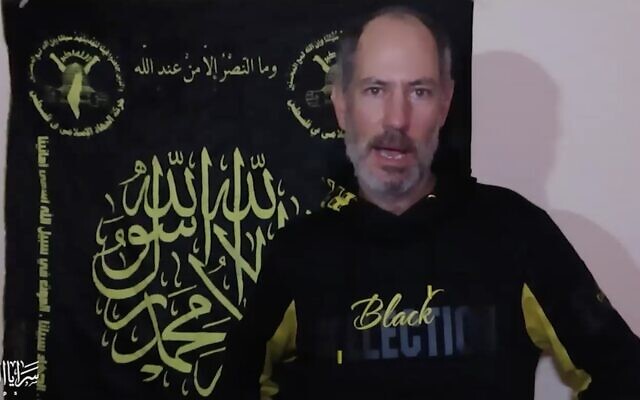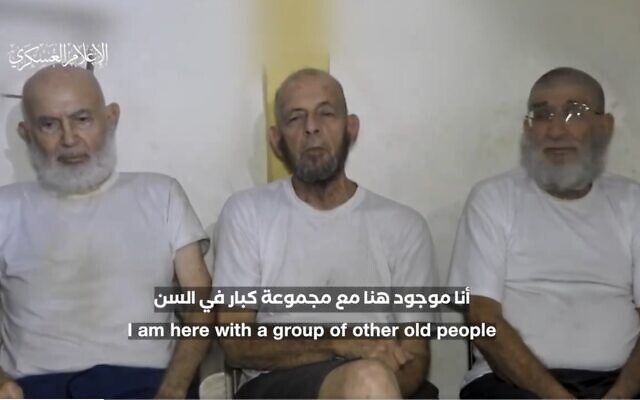



Eight Nobel laureates sent a letter on Tuesday to the heads of the United Nations, the International Committee of the Red Cross, and the World Health Organization urging them to take immediate action to deliver needed medication to the remaining Israeli hostages in Gaza and to act for their immediate release.
The letter was signed by renowned Jewish and Israeli researchers and professors working in Israel and the US. They are chemists Aaron Ciechanover, Avram Hershko, Michael Levitt, Arieh Warshel, Dan Shechtman, Ada Yonath and Roger Kornberg, and economist Daniel Kahneman.
“Over three months have elapsed since the October 7th [Hamas] massacre [against Israel]… As laureates of the Nobel Prize, we express deep concern about the hostages held in Gaza. We find ourselves compelled to speak out against the backdrop of innocent lives being held captive, families being torn asunder, and communities grappling with the harsh realities of war,” they wrote to UN secretary-general Antonio Guterres, ICRC president Mirjana Spoljaric, and WHO director-general Tedros Adhanom Ghebreyesus.
“We insist on speaking the voice of reason, and call you, as leaders, to take actions to promote the release of all hostages as an essential step toward truce and prevention of further bloodshed,” they continued.
Israel has been extremely critical of the WHO, ICRC, and UN for not taking decisive action to free the hostages. Spoljaric came to Israel in December but did not visit the south, where 1,200 people were killed and 240 dragged to Gaza as hostages on October 7, most of them civilians. She has repeatedly said that the ICRC cannot do anything to reach the hostages unless Israel and Hamas come to an agreement through an intermediary.
It is believed that 132 hostages abducted by Hamas on October 7 remain in Gaza — not all of them alive — after 105 civilians were released from Hamas captivity during a weeklong truce in late November. Four hostages were released prior to that, and one was rescued by troops. The bodies of eight hostages have also been recovered and three hostages were mistakenly killed by the military. The Israel Defense Forces has confirmed the deaths of 25 of those still held by Hamas, citing intelligence and findings obtained by troops operating in Gaza.
Hamas has also been holding the bodies of fallen IDF soldiers Oron Shaul and Hadar Goldin since 2014, as well as two Israeli civilians, Avera Mengistu and Hisham al-Sayed, who are both thought to be alive after entering the Strip of their own accord in 2014 and 2015, respectively.
The laureates’ letter speaks of “the unfathomable loss of life” and the internal displacement of thousands on both sides caused by the war. However, its main focus is the hostages’ plight and it refers to an associated 11-page updated medical report prepared by Prof. Hagai Levine and other members of the Medical and Resilience Team of the Hostages and Missing Families Forum.
“The findings of the medical report show an alarming picture of the health of the hostages. As described in the report, at least one-third of these hostages have chronic illnesses and need regular medication. Many others were wounded from the brutal abduction and need care. Others suffer from illnesses related to the harsh captivity conditions, which include mental and physical torture,” the laureates wrote.
“If no medical care is provided urgently for all hostages, the result could be irreversible health problems at best and death at worst. The testimonies of the survivors who were released reveal extreme cases of psychological and physical violence, including brutal sexual assault, mutilation, torture, starvation, and forced dehydration. As each day passes, the health and lives of all hostages are seriously endangered,” they wrote.
The report focuses on the health implications for the remaining hostages, the risks to their physical and mental health, and the treatment they have received in captivity, as detailed in the testimonies of released hostages.
The report is based partially on testimonies provided by hostages who were released November 24-30 during a truce brokered by Qatar and Egypt with the support of the US. Mothers and children under 18 were released, along with some of the women, especially the elderly ones. Among the released were Maya Regev and Mia Schem, both 21, who underwent botched surgery for gunshot wounds to their limbs while in captivity, in Schem’s case by a veterinarian.
The only Israeli mother and children still held in Gaza are Shiri Bibas and her sons Ariel, 4, and Kfir, who turned one year old in captivity.
In putting together the report, which also relies on evidence from video footage of the abduction of hostages to Gaza, the team had to weigh patient confidentiality against the need to illustrate how dire the hostages’ circumstances are. Consent was secured from the family members of 38 hostages whose specific details are disclosed in the report.
As in previous reports prepared by Levine’s group and the Israeli government and delivered to the ICRC, WHO, and UN, this one discusses the immediate health risks to hostages with preexisting chronic illnesses, in need of nursing assistance, or reliant on daily medications and regular medical supervision. These hostages range in age from 20s to 80s.
Some hostages who depend on eyeglasses and hearing aids were taken to Gaza without them or deprived of them once there, leaving them disoriented. This can lead to acute psychological stress, which the report said all hostages are likely suffering from at this point.
“The unbearable conditions raise concerns regarding their mental stability and sanity and the possibility of self-harm, apathy, or suicidal ideation. In some cases, there is evidence that the kidnappers are subjecting the hostages to continuous psychological abuse, which includes informing them that their families have been entirely murdered.”
The report deals with the unhygienic conditions in which the hostages are held that lead to infectious diseases and other health risks.
“Survivors reported limited access to toilet facilities, no access to running water, poor sanitation, and limited access to clean water if any at all. Gastrointestinal illnesses, such as diarrhea, were prevalent among survivors, with several cases diagnosed with pathogens like Salmonella,” the report said.
Finally, the report addresses the unique health risks of women held by Hamas and the other terror groups in Gaza. In danger of sexual violence, they could suffer long-lasting adverse mental and physical health implications.
“Following rape, women are at risk for dangerous physical injuries, life-threatening bleeding, sexually transmitted diseases, including HIV/AIDS, or loss of reproduction. Furthermore, rape could lead to unwanted pregnancy, that could be life-threatening without proper medical care, in cases such as ectopic pregnancy or miscarriage,” the report said.




